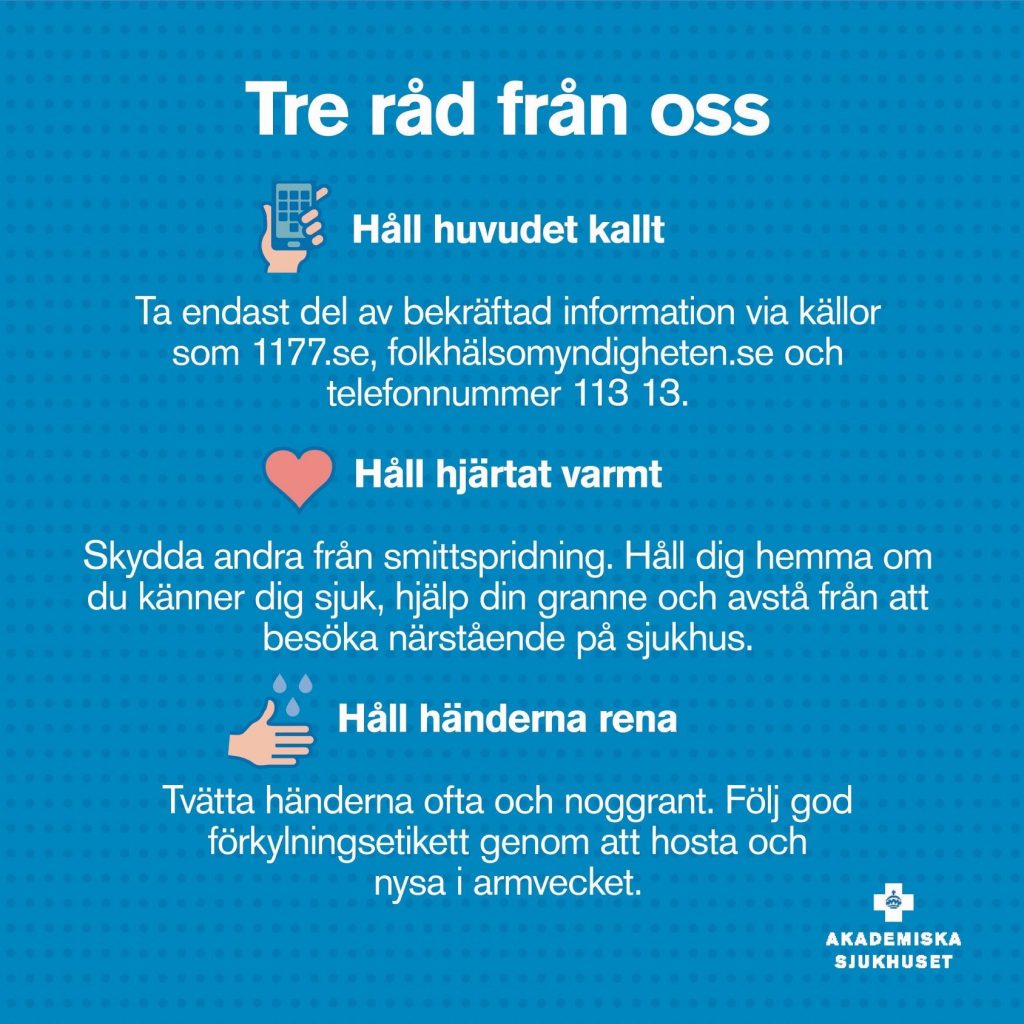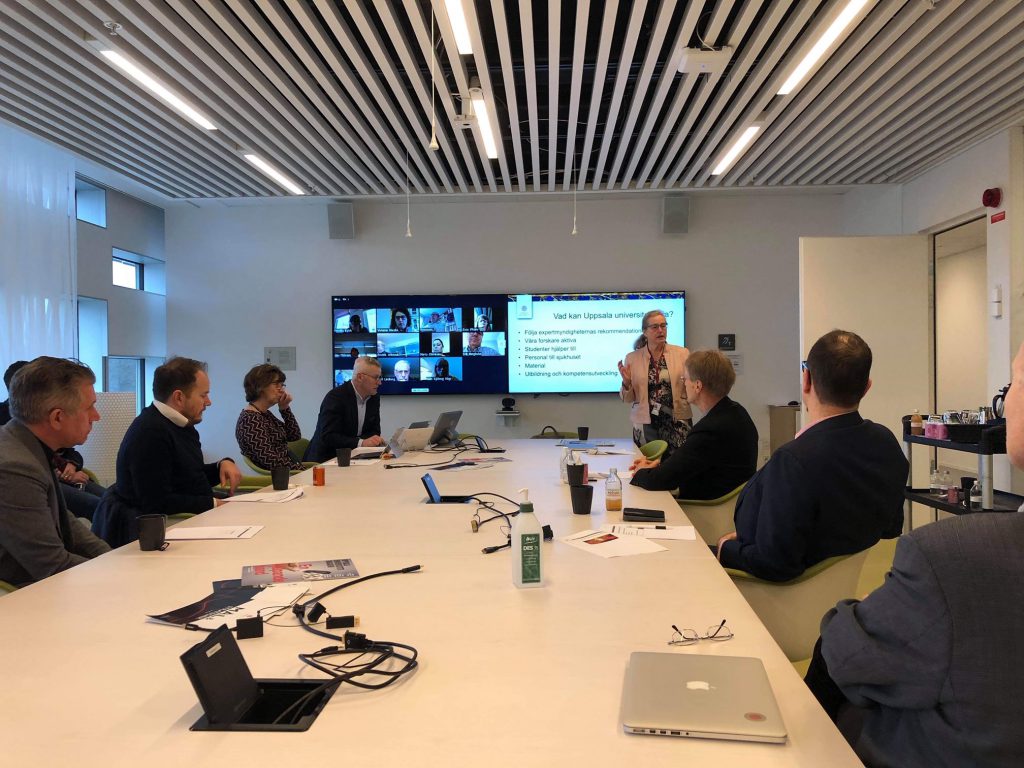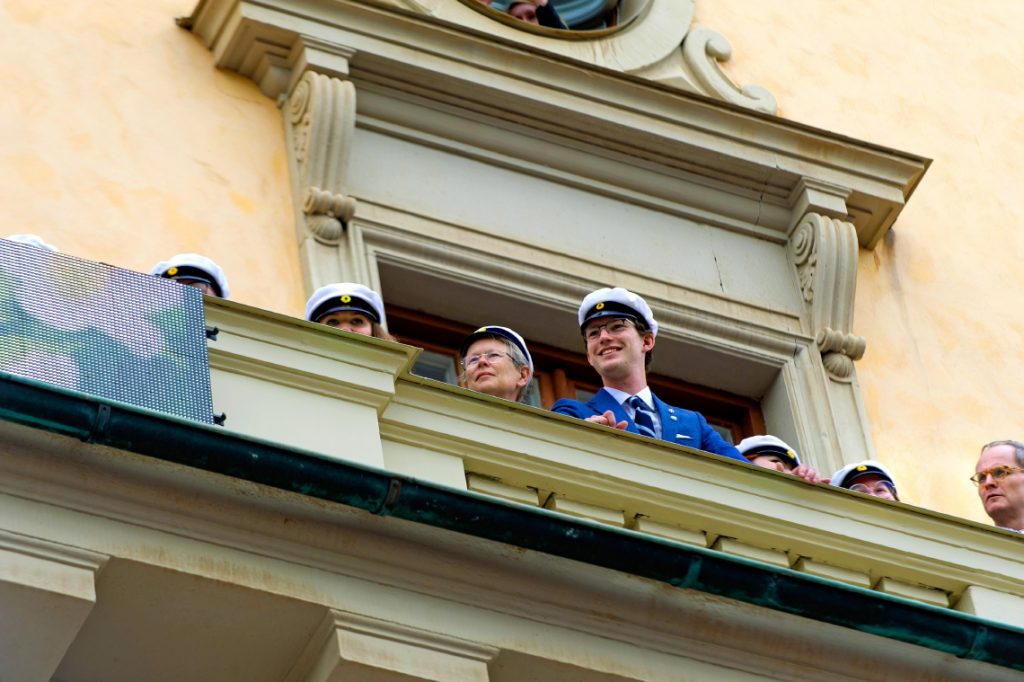A week or so ago, nobody knew the University would manage in just 24 hours to reorganise its activities and make changes that would normally take months or years. A quantum leap into the future. Of course, distance education is nothing new, but it was vital that preparations had been made for a possible announcement of immediate reorganisation. Suddenly we are in the midst of digital reality, no doubt a bit dazed and weary after working so hard – but you did it and everything is working far better than expected. We have not cancelled everything and shut up shop: we have reorganised our teaching at record speed and are now a digitalised university for 46,000 students. You who have achieved this are all heroes. Thanks also to all the students who are helping one another and supporting our efforts to spread information.

Keep up the good and creative work. It is a matter of keeping going by our combined efforts. The important thing now is to continue to follow the recommendations: stay at home if you feel at all under the weather, keep your distance to one another when you meet and wash your hands. In these respects we must all, without exception, set a good example. If you are among those at risk, you should try to work from home, while the rest of us can do so if and when it is possible and appropriate given our duties. We will need staying power – this situation can be expected to last for a good while to come.
Many people at the University are signalling that they want to contribute in the fight against the coronavirus. This is pleasing. It goes without saying that we must do what we can to help. Our University has protective equipment, analytical laboratories, pharmaceuticals and expertise in medicine and many other areas. There are many creative ideas and they are more than welcome. Having said that, it is important that the help is well coordinated so that it is channelled to where it is needed most. Groups of students have also offered their assistance, for example by helping school pupils to achieve learning outcomes in subjects such as languages and mathematics.

On Friday those of us in the University’s management team met politicians from the Uppsala region and county governor Göran Enander. Everyone agreed that we have to take a coordinated approach to the needs. The best way to contact us at the University is via the registrar at registrator@uu.se. In addition to material and medical expertise, the knowledge of social scientists is in demand to address the complex economic consequences for society. This weekend, we received welcome news from the Knut and Alice Wallenberg Foundation that they are allocating SEK 50 million for increased analysis of coronavirus tests at SciLifeLab, Uppsala University and Karolinska Institutet to assist the health services in scaling up testing. Where we will stand a week from now we do not know; we need to be prepared to adapt to further announcements from the Public Health Agency of Sweden and the government.

On Friday we also took the sad but necessary decision, in coordination with our partners, to cancel our Walpurgis Eve (Valborg) activities. Helping to organise a day that usually attracts 150,000 people in Uppsala is neither responsible nor legal in the current situation. However, we will be announcing a plan for digital celebrations for the University. Valborg remains in the calendar.
Even if it may feel far off, there will be an afterwards, a post-corona time when we will get back to normal. There are likely to be some lasting changes in our activities and in society in general. The coronavirus will have hit some parts of society harder than others and some seriously affected groups in the labour market may need to reskill. There will be a need for new research in various areas to learn from what we have been through and reduce the risk of a future pandemic. We will probably learn to see new advantages in digital ways of working and perhaps, with increased risk awareness, we will re-evaluate a good many aspects of working life and life in general.
